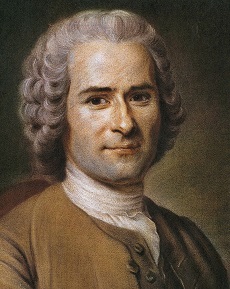Last week on the 7.30 Report we were treated to a debate between Mark Butler, the climate change minister and his Opposition counterpart, Greg Hunt, that just did not work. Leigh Sales tried a hard-edged questioning style, but unfortunately did not come close to being familiar with the topic. So large parts of the LNP agenda were unaddressed, such as their dismantling of the institutional framework of the the Climate Commission, the Climate Change Authority, the incorporation of the Climate Department into the broader environment department and the dismantling of the Clean Energy Finance Corporation.
One issue canvassed was the sequestration of carbon in soil, which comprises a large part of the LNP’s mitigation strategy.
Mark Butler said the cost of such abatement was higher than previously thought, the potential for sequestration less and given the problems and uncertainties there “may be some opportunity to abate carbon pollution through soil carbon initiatives in the future, but it is grossly irresponsible to make it the centrepiece of a nationwide carbon pollution policy.”
Hunt dismissed those concerns, quoting the CSIRO but when he was pressed on whether he was talking about just soil carbon he said he meant the full range of green carbon initiatives – mallee and mulga revegetation, reforestation, avoided deforestation, soil carbon.
A recent article in Nature (paywalled) came to the conclusion that:
considering carbon storage on land as a means to ‘offset’ CO2 emissions from burning fossil fuels (an idea with wide currency) is scientifically flawed. The capacity of terrestrial ecosystems to store carbon is finite and the current sequestration potential primarily reflects depletion due to past land use. Avoiding emissions from land carbon stocks and refilling depleted stocks reduces atmospheric CO2 concentration, but the maximum amount of this reduction is equivalent to only a small fraction of potential fossil fuel emissions.
Continue reading Soil carbon and direct (in)action →



 My attention was drawn to a series of articles under the heading The Meltdown by Peter Hartcher by Mark and then
My attention was drawn to a series of articles under the heading The Meltdown by Peter Hartcher by Mark and then  Meanwhile I’ll try to keep some information flowing on climate change. Both these projects may be of more use than any contribution I can make to an election here in Oz. This time CC will be free flow rather than numbered items, to save time. I’ll use bold to identify the topics.
Meanwhile I’ll try to keep some information flowing on climate change. Both these projects may be of more use than any contribution I can make to an election here in Oz. This time CC will be free flow rather than numbered items, to save time. I’ll use bold to identify the topics.